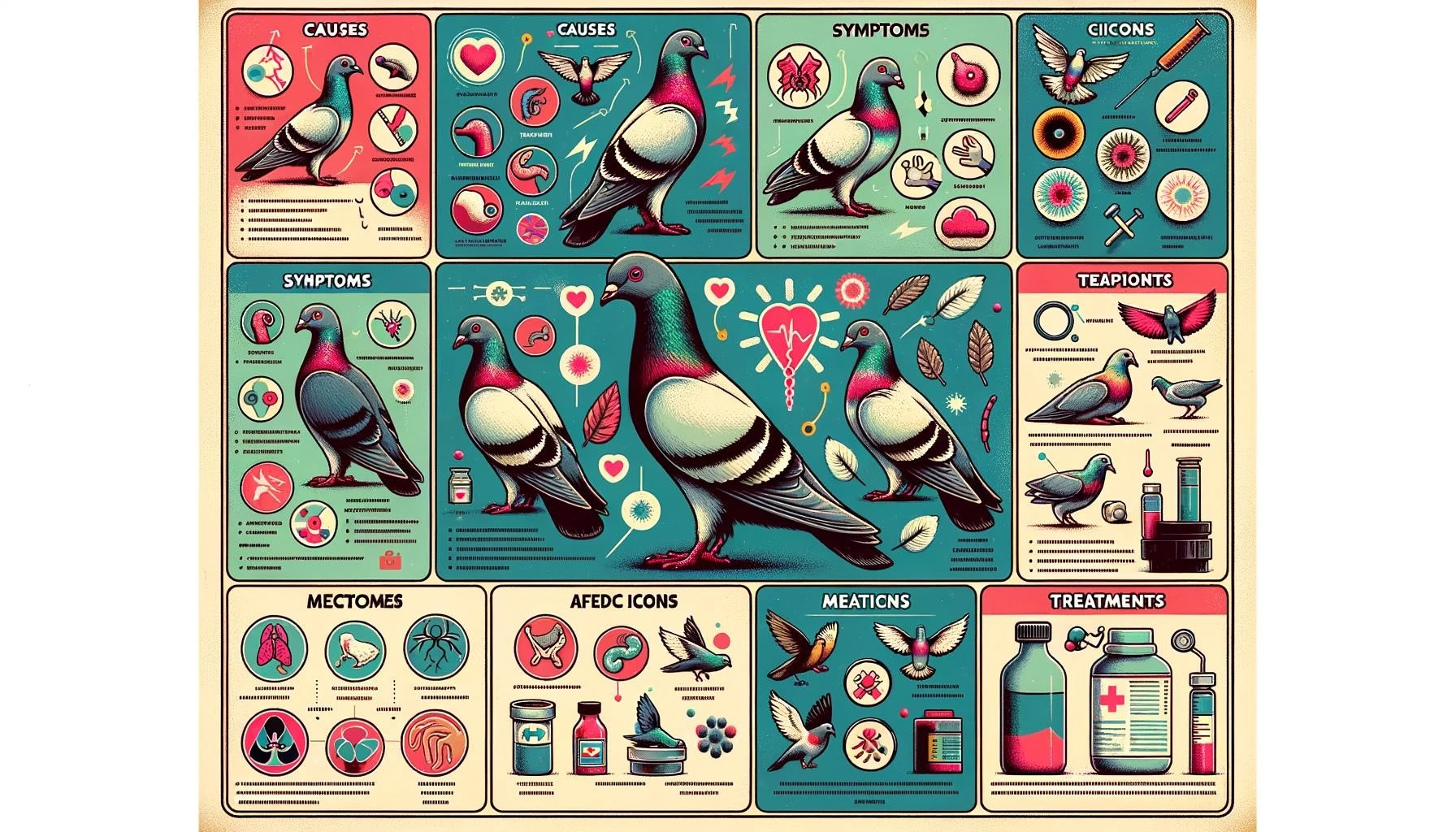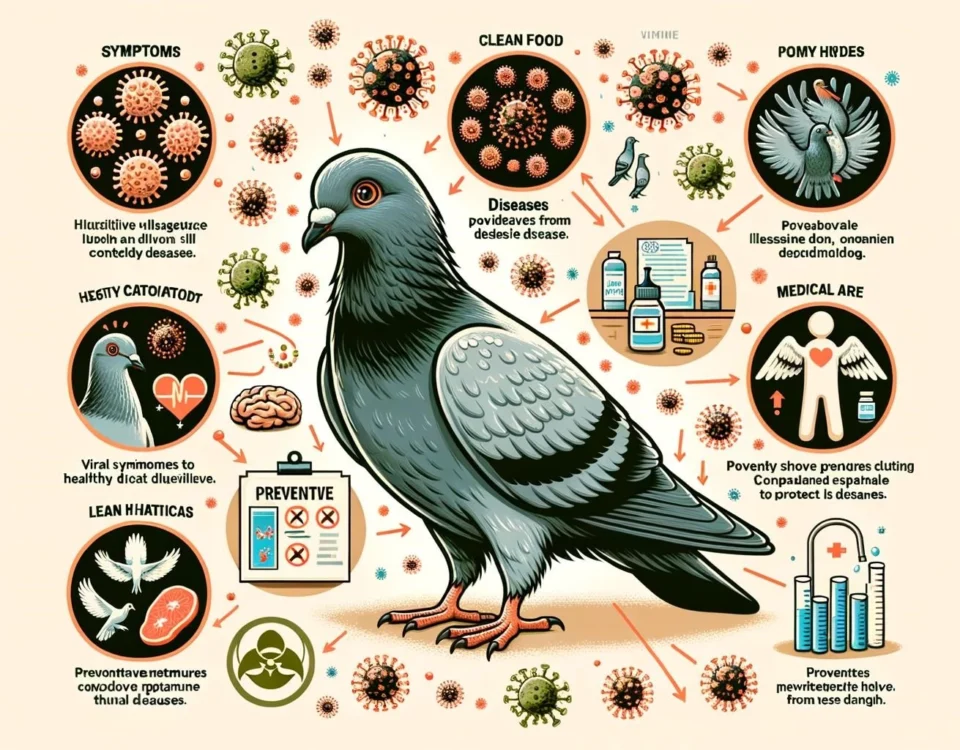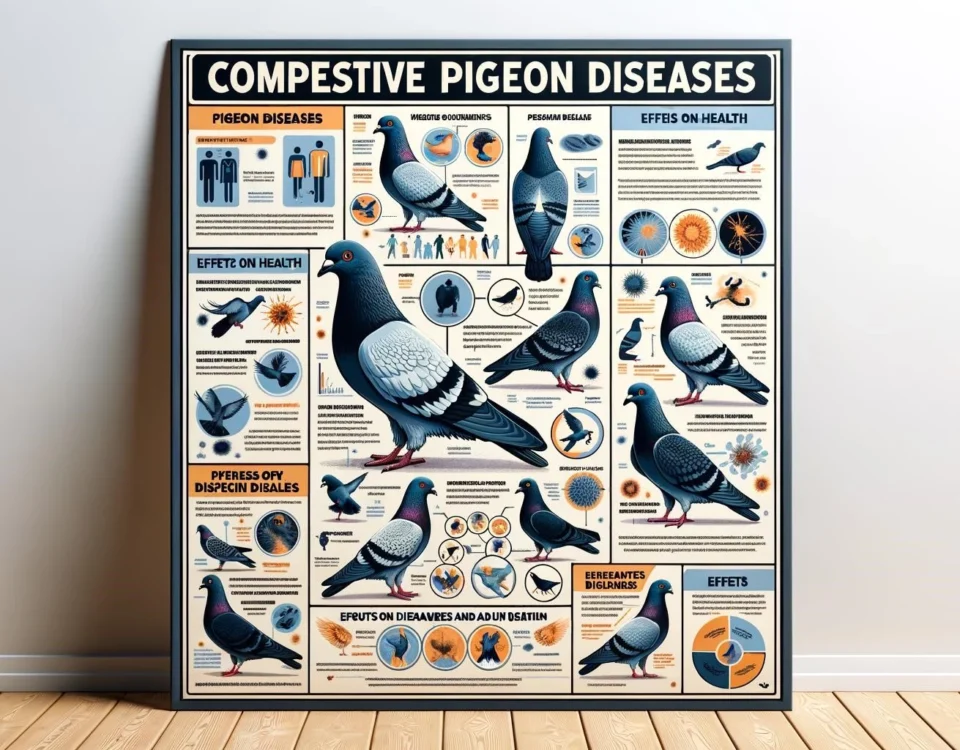Young pigeons can be susceptible to various diseases that can affect their health and overall well-being. It is important for pigeon owners and enthusiasts to be aware of these diseases and their symptoms in order to provide timely and effective treatment. In this article, we will explore some of the common diseases that affect young pigeons and discuss their causes, symptoms, and possible treatments.
Key Takeaways
- Young bird sickness is a common condition in pigeons within the first six months of their lives.
- It can be caused by viruses and bacteria including circovirus, adenovirus, and herpes virus.
- Symptoms of young bird sickness include vomiting, loss of appetite, weight loss, and greenish droppings.
- While there is no cure for circovirus or herpes virus, treatment options exist for managing symptoms and preventing secondary infections.
Circovirus
Circovirus is a viral infection that affects young pigeons, causing a condition known as Young Pigeon Disease Syndrome (YPDS). It is characterized by immunosuppression, making the birds more susceptible to secondary bacterial, viral, or parasitic infections. Infection with circovirus can lead to symptoms such as lethargy, weight loss, respiratory distress, diarrhea, and poor performance.
Unfortunately, there is no specific cure for circovirus, but supportive care and management can help alleviate symptoms and prevent secondary infections. Good hygiene practices, proper nutrition, and minimizing stress are important factors in preventing and managing circovirus infections in young pigeons.
Adenovirus
Adenovirus is another virus that can cause young pigeon disease. It often occurs in combination with other infections, such as E.coli, leading to a more severe illness. Young pigeons infected with adenovirus may become quiet, fluffed, lose weight, and develop green mucoid diarrhea.
There is no specific treatment for adenovirus, but it is important to provide supportive care and manage any secondary infections. Maintaining good hygiene, providing a clean and stress-free environment, and ensuring proper nutrition can help prevent and manage adenovirus infections in young pigeons.
Herpes Virus
Herpes virus infections can also affect young pigeons, causing a range of symptoms including respiratory distress, eye and nose discharge, poor growth, and low vitality. The presence of herpes virus can weaken the immune system of affected pigeons, making them more susceptible to other infections.
Unfortunately, there is no cure for herpes virus infections in pigeons. However, supportive care and management can help alleviate symptoms and prevent secondary infections. Good hygiene practices, proper nutrition, and minimizing stress are essential in preventing and managing herpes virus infections in young pigeons.
Conclusion
Young pigeons can be susceptible to various diseases, including circovirus, adenovirus, and herpes virus infections. These diseases can affect the health and well-being of young pigeons, leading to symptoms such as lethargy, weight loss, respiratory distress, and gastrointestinal issues. While there is no specific cure for these viral infections, supportive care, good hygiene practices, proper nutrition, and stress reduction can help manage symptoms and prevent secondary infections. Regular monitoring and prompt veterinary attention are crucial for ensuring the health and well-being of young pigeons.








